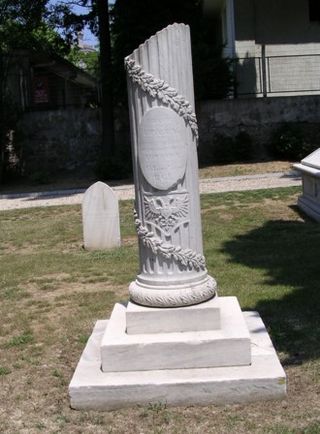The British German Legion (or Anglo-German Legion) was a group of German soldiers recruited to fight for Britain in the Crimean War. It is not to be confused with the King's German Legion, which was active during the Napoleonic Wars. Great Britain raised a British German Legion of two regiments of light dragoons, three Jäger Corps, and six regiments of light infantry; a British Italian Legion of five regiments of infantry, and a British Swiss Legion of three regiments of light infantry. At the end of the war, the soldiers were entitled to return to their country of origin at the public expense, but some, fearing a hostile reception at home, settled in the Cape of Good Hope.

The head of the Legion was Major General Richard von Stutterheim.[1]
The British government funded and gave material support to von Stutterheim to recruit soldiers into the Legion. In March 1855, von Stutterheim began raising the Legion by hiring 200 agents in Germany to recruit soldiers, focusing mostly on port cities. The recruiters would go to taverns, buy beer for young men and recruit them once they were inebriated. It is believed that Stutterheim was paid $40 for each recruit, paying $20 to each recruit and pocketing the other $20, thereby earning himself $120,000 in the process.[2]
On 16 July 1856 members of the Legion were involved in a fracas with British soldiers in the Camp at Aldershot in Hampshire which quickly developed into a major riot fought with stones, sticks and bayonets and leading to about 50 men receiving hospital treatment. Though both sides were equally to blame, the men of the British German Legion were billeted at Barrack field in Colchester Garrison,[3] where many married local women.[4]
It was disbanded in November 1856, having seen little or no military action due to the war having ended. Facing difficulties in repatriation by having served a foreign country, most of the members of the Legion were resettled in the Eastern Cape Colony, in South Africa.[5] As a result, to this day there are place names of German origin in the area around King William's Town, including the town of Stutterheim.
Bibliography
Charles Calvert Bayley (1977). Mercenaries for the Crimea: the German, Swiss, and Italian Legions in British Service, 1854-1856. Montreal: McGill-Queen's University Press. ISBN 0-7735-0273-4.
References
External links
Wikiwand in your browser!
Seamless Wikipedia browsing. On steroids.
Every time you click a link to Wikipedia, Wiktionary or Wikiquote in your browser's search results, it will show the modern Wikiwand interface.
Wikiwand extension is a five stars, simple, with minimum permission required to keep your browsing private, safe and transparent.
